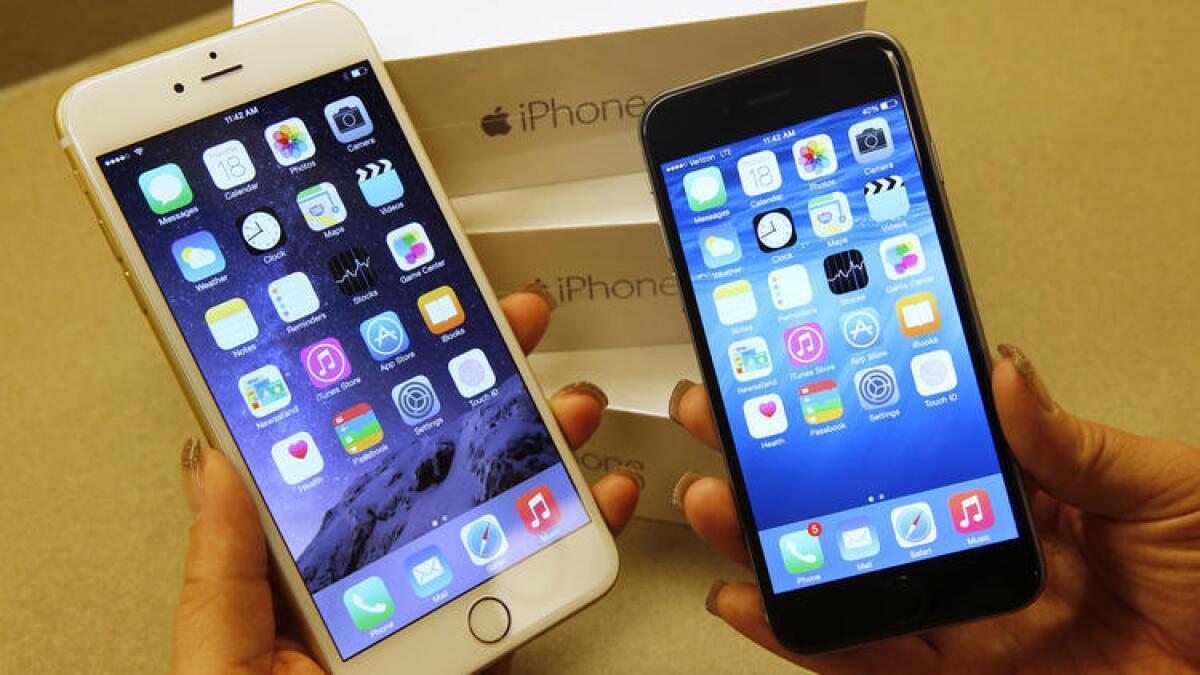Apple beats Samsung to become world’s No. 1 smartphone maker

- Share via
Apple topped Samsung in smartphone sales for the first time since 2012, selling 74.8 million units in the fourth quarter of last year, surpassing Samsung as the No. 1 smartphone maker globally.
Apple’s success was driven by huge demand for the iPhone 6 and 6 Plus in the U.S. and in China, according to research firm Gartner.
“Samsung’s performance in the smartphone market deteriorated further in the fourth quarter of 2014, when it lost nearly 10 percentage points in market share,” Anshul Gupta, principal research analyst at Gartner, wrote in a report released Tuesday.
“Samsung continues to struggle to control its falling smartphone share, which was at its highest in the third quarter of 2013. This downward trend shows that Samsung’s share of profitable premium smartphone users has come under significant pressure.”
It was, however, also a record quarter for the smartphone industry overall: Worldwide sales of smartphones increased 29.9% year over year to reach 367.5 million units sold.
In 2014, smartphone sales totaled 1.2 billion units, up 28.4% from 2013 and representing two-thirds of global mobile phone sales.
Part of the problem for Samsung: The market is bifurcating. Apple commands the high-end, aspirational customer while a fast-rising crop of Chinese phone makers are snapping up the more price-conscious buyer. Samsung is caught in the middle.
To help combat its market share slide, Samsung on Sunday released overhauled versions of its Galaxy line of smartphones, featuring premium materials and a new emphasis on design.
Samsung, based in Korea, did hang on to the No. 2 spot. Rounding out the top 5 for the fourth quarter were Lenovo, Huawei and Xiaomi, all Chinese companies.
Among operating systems, Google’s Android is still dominant, running on 80.7% of the smartphones sold globally last year, up from 78.5% the year before.
BlackBerry, on the other hand, saw its market share by operating system slip to under 1%. It now accounts for just 0.6% of the market.
Twitter: @byandreachang







